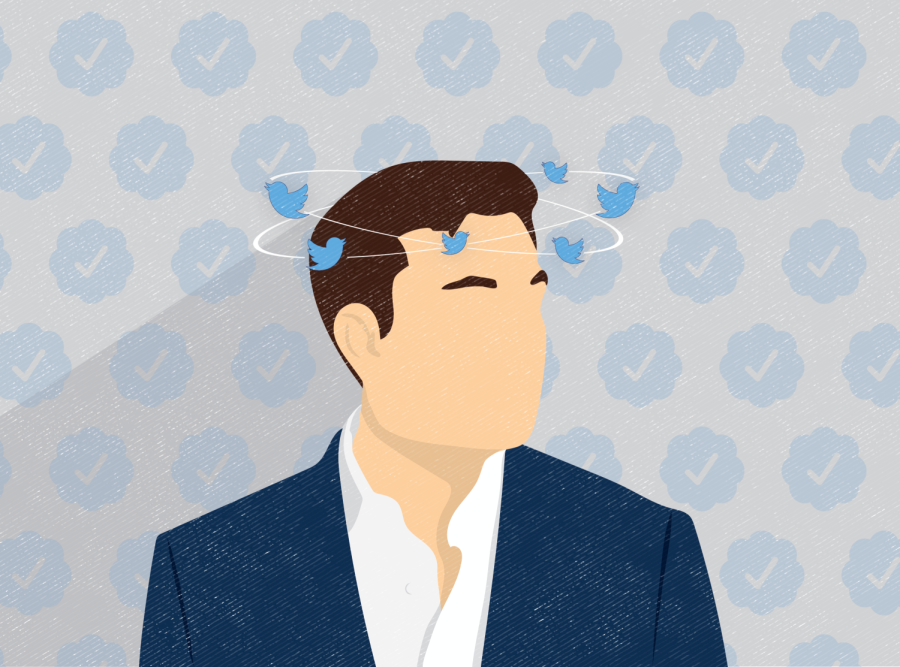Musk In Over His Head, Evidenced by Prank Accounts
From electric cars to rocket science, the business acumen of Tesla and SpaceX founder Elon Musk has appeared practically infallible before his latest venture. Despite his history of financial success as the richest person in the world, Musk has faced a considerable amount of economic turmoil trying to navigate the aftershocks of purchasing Twitter in October. Looking back on Twitter’s recent month of economic disrepair, the Musk mania that has unfolded paints the multibillionaire as being completely out of his element. For a man who knows the intricacies of rocket science, Musk has shown that understanding the inner workings of a social media company is far more complex.
The driving factor behind the Twitter upheaval is Musk’s desire to make the company profitable, which has ended up being a very lofty goal due to the company’s perennial economic failures. Over the course of Twitter’s history, the company has consistently posted annual net losses. Even in 2021, when Twitter saw a 35% increase in revenue from the prior year, the company managed to lose $221 million in operational expenses. Without any sort of paywall for its use, Twitter generated around 98% of its annual revenue that year from advertisers. The advertising revenue that was generated in the past was contingent upon a level of censorship across the platform. Musk publicly and adamantly denounces censorship, and this has triggered half of Twitter’s top 100 advertisers to remove themselves from the app. This loss, coupled with the additional interest-gaining $13 billion worth of debt Musk accrued from banks in order to meet Twitter’s $44 billion asking price, has made its goal of profitability that much more unattainable.
For all of the stories heralding his business acumen and predictions of Twitter’s future success, Musk has positioned the company to be headed more likely toward bankruptcy than prosperity. Only a few days following the finalizing of the purchase, Musk revealed in a tweet his plan to revamp the verification process: the infamous $8 verification program. Prior to the new plan for verification, users were judged and granted verified account status on an individual basis. The way the plan had previously been functioning allowed for Twitter to minimize the amount of parody accounts of celebrities, athletes, politicians and companies. Under the guidelines of Musk’s new plan, the process of verification went as follows: in exchange for $8 and no proof of identity, any user could receive verified status across the platform with any username.
In a deleted tweet from Nov. 1, Musk states that the idea for the $8 verification enrollment program was fueled by his hopes to eradicate Twitter’s caste-like system between “Lords,” those verified, and “peasants,” those who are not. Despite his so-called care for the welfare of those on his platform, the program resulted in extreme consequences to those both on and off the platform, appearing to have been rushed to release in attempts to quell the ever-growing mountain of debt facing the company. With the blatant lack of attention to the real identities of users signing up for the subscription service, parody accounts have run rampant throughout the site. From Nintendo’s beloved character Mario to an account posing as Apple advertising its new product, Apple oxygen, these fake accounts can mask how seriously harmful they are.
A “verified” account posing as Eli Lilly & Co., a chief distributor for insulin in North America, announced that the company would henceforth offer insulin for free. Following this statement, the price of the company’s stock dropped from $368 a share to $352 in the span of a day. Clearly not anticipating the potential for the subscription service’s failure, Elon Musk and Twitter were forced to concede to their mistake as the service was promptly paused on Nov. 11 following the pharmaceutical company’s stock collapse. In attempts to save face and get out in front of the narrative, Musk has scrubbed his Twitter of any mention of the program.
To a college student with some understanding of the world of social media and of the existence of internet trolls, the outcome of the verification debacle could have easily been predicted. Despite his attempts to save face and rid his account of any reference to the program, the blunder of creating a verification subscription service without any identification requirement is obvious and points to Musk being out of touch with the users who frequent his platform. Although the stock price of Eli Lilly has since recovered, such a significant, immediate drop of the market value for a company can lead to mass layoffs. A prime example of such dire consequences can be seen in Twitter, with more than 50% of its workforce losing their jobs following the change in ownership.
It is too early in Musk’s tenure as owner of Twitter to make conclusions regarding his ability to run the company. Musk is consistently painted as having almost otherworldly levels of business intellect, which is a foolish notion, but one we often bestow upon well-known billionaires. Now that the world has experienced his shortcomings, it exposes his flaws and humanity in the professional world. As the famous saying goes, he may have bitten off more than he could chew.
Zachary Badalamenti, FCRH ’25, is a journalism major from Oakland, Calif.

Erynn Sweeney is a sophomore from Cypress, California, majoring in international political economy. She joined The Ram as a copy editor for Volume 105,...










































































































































































































